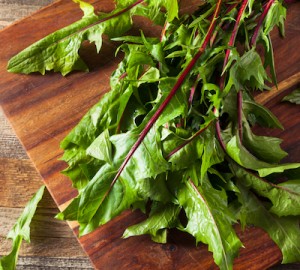What Makes Vegetables Bitter?
Plants are constantly under attack! Insects, animals, bacteria, fungus, and of course people are constantly trying to eat them. This is why many plants produce various toxic compounds as a defensive strategy against predators. Humans have an ability to detect the presence of these toxins through specialized taste receptors that register these compounds as bitter to the taste.
This allowed humans to nibble on a leaf and, depending on the amount of bitter, determine whether or not a plant was safe to eat. Herbivores do not have the same bitter taste receptors as humans. This is because herbivores have larger livers to process the toxins in the plants.
The interesting twist is that many of these “toxic” bitter compounds are also medicinal at low doses. This is referred to as hormesis.
Hormesis
The process of hormesis involves non-toxic exposure to a toxic substance which then triggers the immune system and up regulates the boy’s defensive processes . Many of the bitter compounds in cruciferous vegetables would be toxic in higher doses but serve to strengthen the body in low doses.
This includes the bitter compounds in plants such as phenols, flavonoids, isoflavones, terpenes, and glucosinolates. Many of these compounds have been found to have antioxidant, anti-bacterial, anti-fungal, anti-inflammatory, and even anticarcinogenic properties.
These are the same powerful types of compounds coveted by pharmaceutical companies to be extracted and patented as the next blockbuster drug. The pharmaceutical industry isolates specific constituents from plants, fungi, algae etc. but fails to recognize that these compounds exist synergistically in particular ratios in nature. When these powerful substances are divorced from their natural context it leads to the myriad of “side-effects” that we see quickly listed at the end of pharmaceutical advertisements.
These drugs are used to treat illnesses that are largely a result of no longer having adequate amounts of these naturally occurring bitter compounds in our diets. Most of the industrial food we consume here in the west is bereft of the deep nutrition that is often found in nature.
Selective Breeding To Remove The Bitter
Over time, as humans began to domesticate crops, the bitter compounds of wild plants were bred out of the genetics. This is due to the fact that, understandably, farmers selectively bred crops to not only be more productive but also more delicious and thus less bitter. This means that most of the produce in the grocery store is considerably lacking in beneficial bitter compounds.
Given the beneficial nature of the bitter compounds found in plants it is important for us to consume adequate amounts. On average, bitter flavor constitutes only about 5-8% of calories consumed by the average American.
How To Eat More Bitter Vegetables
First, make sure to choose nutrient dense bitter greens when available. This includes greens such as swiss chard, dandelion, arugula, and watercress. These vegetables have significantly more beneficial bitter compounds than the more common choices such as lettuce and spinach.
Another strategy is to prepare vegetables so as to mask the bitter flavor. Roasting veggies converts the starches to sugar giving them a sweeter taste and making them more palatable. You can also add healthy fat such as grass-fed butter, ghee, tallow, coconut oil, avocado oil, and olive oil to your vegetable dishes. The fat enhances the flavor and also renders the fat-soluble nutrients in the veggies more bioavailable. Sea salt can also help hide the bitter flavor in addition to adding valuable trace minerals to your meal.
Greens Powder
Another solution to make sure you are consuming adequate amounts of the beneficial bitter compounds found in cruciferous vegetables is to supplement with a high quality greens powder such as Dr. Colbert’s Fermented Green Supremefood. Although not a replacement for fresh produce, a greens powder can help to supplement a healthy diet to make sure you are receiving the densest nutrition possible.
References
1. https://www.ncbi.nlm.nih.gov/pubmed/24025627
2. http://io9.gizmodo.com/are-there-some-vegetables-you-cant-stand-it-may-be-gen-1532668567
5. http://ajcn.nutrition.org/content/72/6/1424.full
7. https://blog.bulletproof.com/the-kale-shake-is-awesome-so-upgrade-it/



















